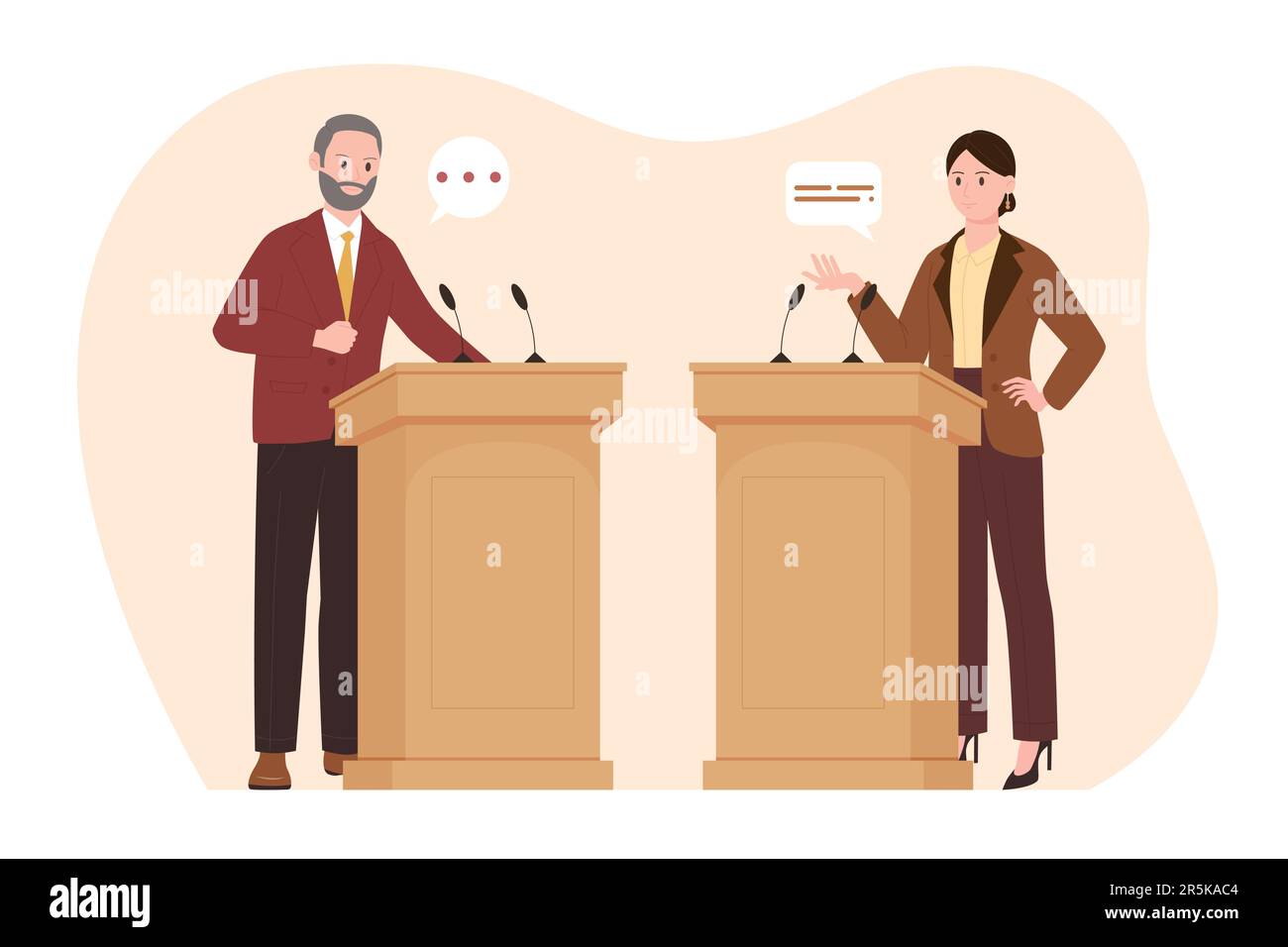Historical Context of Presidential Debates

Presidential debates have become a cornerstone of American democracy, offering voters a platform to witness candidates’ positions and personalities. The evolution of these debates has been a journey, shaped by changing media landscapes, political dynamics, and societal expectations.
Early Beginnings and the First Televised Debate
The first formal presidential debates were held in 1960 between John F. Kennedy and Richard Nixon. This historic event marked a turning point in American politics, as it allowed voters to see and hear the candidates directly for the first time. The debates were broadcast on television, and Kennedy’s charisma and youthful appearance were perceived favorably by viewers. Nixon, on the other hand, appeared pale and sweaty, possibly due to his refusal to wear makeup. This first televised debate had a significant impact on the election outcome, as many believe it helped Kennedy win the presidency.
Key Debates and Their Impact on Elections
Throughout history, several debates have left a lasting impact on American politics.
- The 1980 debate between Ronald Reagan and Jimmy Carter was significant for Reagan’s focus on the economy and his ability to connect with voters. Reagan’s confident performance and clear message resonated with the electorate, contributing to his landslide victory.
- In 1984, Reagan and Walter Mondale engaged in a debate that focused on social issues and foreign policy. Reagan’s strong performance solidified his re-election, highlighting the power of a candidate’s ability to effectively articulate their views.
- The 1992 debate between Bill Clinton, George H.W. Bush, and Ross Perot is remembered for its focus on the economy and Clinton’s ability to connect with voters on a personal level. Clinton’s performance helped him win the election, showcasing the importance of a candidate’s ability to address voters’ concerns and present themselves as relatable.
The Changing Role of Media
The role of media in shaping public perception of debates has evolved significantly over time. In the early days of televised debates, the media’s influence was largely limited to broadcasting the event itself. However, the rise of cable news and the internet has created a more fragmented media landscape, where different outlets offer diverse perspectives on the debates.
“The media plays a crucial role in shaping public perception of presidential debates, but the influence of social media has made it more difficult for traditional media outlets to control the narrative.”
This shift has created new opportunities for candidates to reach voters directly through social media platforms, but it has also increased the potential for misinformation and bias.
Format and Structure of Debates

Presidential debates are structured events designed to provide voters with a platform to observe and evaluate the candidates’ positions on critical issues. These debates typically involve a set format, including the number of participants, the presence of moderators, and the topics covered.
The format and structure of presidential debates are crucial for ensuring a fair and informative exchange of ideas.
Debate Formats
Different debate formats are employed to cater to various audiences and objectives.
- Traditional Debates: In traditional debates, candidates are seated on a stage and engage in direct exchanges with each other. Moderators typically pose questions to the candidates, and candidates are given time to respond and rebut each other’s statements. This format emphasizes direct confrontation and allows for a clear comparison of the candidates’ viewpoints.
- Town Hall Meetings: Town hall meetings involve a more interactive format, where candidates respond to questions from a live audience. This format allows for a more personal connection between the candidates and the voters, providing an opportunity for voters to voice their concerns and hear the candidates’ responses directly.
Role of the Moderator, Presidential debates
The moderator plays a vital role in ensuring a fair and productive debate. The moderator’s responsibilities include:
- Setting the Ground Rules: The moderator establishes the rules of engagement, including the time allotted for each response, the format for questions and rebuttals, and the procedures for handling interruptions or disagreements.
- Guiding the Discussion: The moderator steers the conversation towards the predetermined topics and ensures that all candidates have an opportunity to present their views.
- Maintaining Fairness: The moderator strives to ensure that all candidates receive equal treatment and that the debate remains objective and impartial. This involves managing the time allotted to each candidate, ensuring that all candidates have a chance to respond to questions, and preventing any candidate from dominating the discussion.
Presidential debates, they’re like the main event of the political season, right? Everyone’s glued to their screens, waiting for the fireworks. And who better to break down the action than David Muir, the man who knows how to dissect a debate and give us the real lowdown.
He’s like the commentator for the political game, you know? So, yeah, the debates are a big deal, but they’re even better with David Muir’s insights!
Presidential debates are a big deal, especially when you’re trying to figure out who’s gonna be the next leader of the country. But let’s be real, timing is everything. Check out presidential debate time and see how it can actually make or break a candidate’s chances.
Because at the end of the day, it’s all about who can make the most impact in the shortest amount of time.
